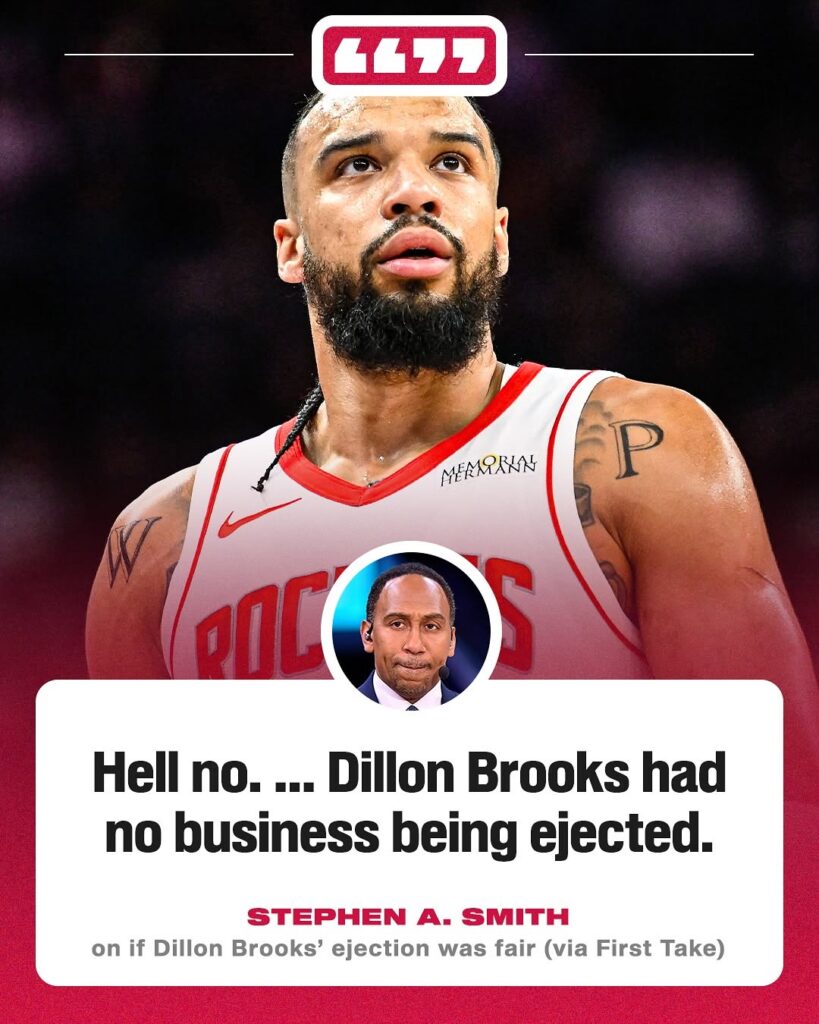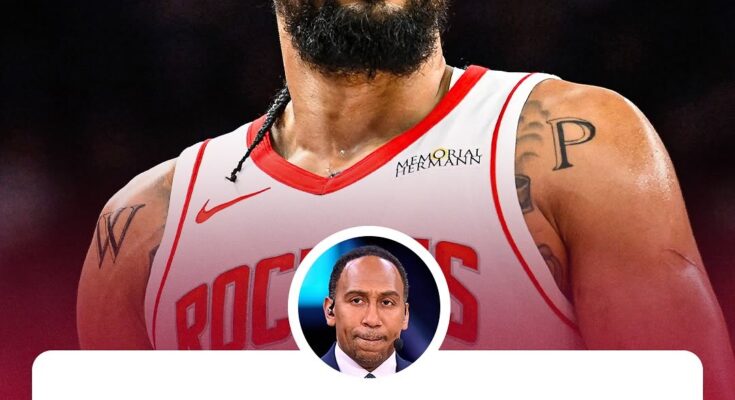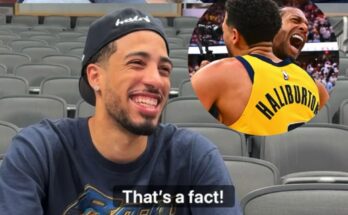
In the world of sports commentary, few personalities are as well-known and outspoken as ESPN’s Stephen A. Smith. His bold opinions often spark debates across social media, and his take on the Dillon Brooks ejection was no exception. Smith, a seasoned analyst with a history of controversial takes, weighed in on the ejection of Brooks during a Memphis Grizzlies game, asserting that it was unfair and somewhat of an overreaction by the officials.
The incident that sparked Smith’s ire involved Brooks, a fiery and intense player for the Grizzlies, being tossed from the game after a questionable play. Brooks, known for his aggressive style of play and his occasional trash-talking antics, was no stranger to drawing the ire of officials. However, many fans and analysts, including Stephen A. Smith, felt that the ejection was excessive, particularly given the circumstances surrounding the play.
Brooks had been involved in a hard foul, one that many thought was simply a part of the game. While it was physical, it wasn’t seen as malicious, and certainly not deserving of an automatic ejection. The referees, however, made the decision to toss Brooks from the game, a decision that many felt was influenced by his reputation rather than the actual nature of the foul. Smith’s argument was that Brooks, while a player with a certain persona, deserved the benefit of the doubt, especially since he wasn’t known for intentionally injuring opponents or engaging in overly dangerous plays.
Stephen A. Smith’s commentary was rooted in the belief that officials were too quick to pull the trigger on ejections when it comes to players with a history of controversial actions. For Smith, the situation highlighted an ongoing issue in the NBA where players with a reputation for being physical or outspoken, like Brooks, can often be penalized more harshly than others. He argued that this double standard was evident in the way referees handled Brooks’ situation, comparing it to similar incidents where players with a less controversial reputation weren’t subjected to the same level of scrutiny.
Smith didn’t stop there, taking a deeper dive into the impact of such decisions on the game and the players involved. He emphasized that ejections often have a significant effect on the flow of the game, especially when it involves a key player like Dillon Brooks. For the Grizzlies, losing Brooks during a critical moment could drastically alter their chances of success, something that fans and analysts alike were quick to point out. In Smith’s view, the ejection wasn’t just about Brooks; it was about the larger issue of how the NBA officiates and manages player conduct.
While Smith’s opinion certainly struck a chord with some fans who agreed with his assessment of the situation, others felt that the decision to eject Brooks was warranted. The debate over what constitutes a fair ejection and how much weight a player’s history should carry in such decisions is likely to continue. For now, Smith’s passionate defense of Brooks serves as yet another reminder of the complexities of officiating in professional sports, where perceptions, reputations, and personalities can sometimes influence the outcome of a game.



